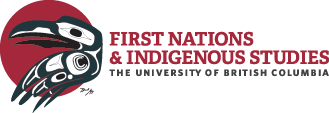Aboriginal Title
…across what is now known as North America have maintained a strong connection to the land since time immemorial. Although there is vast cultural variation between First Nations, most groups…
Oral Traditions
…Hereditary Chief and Keptin of the Mi’kmaq Grand Council1 Throughout history, Aboriginal societies in North America have relied on the oral transmission of stories, histories, lessons and other knowledge to…
Sixties Scoop
…was one of these areas.2 In 1951, twenty-nine Aboriginal children were in provincial care in British Columbia; by 1964, that number was 1,466. Aboriginal children, who had comprised only 1…
Aboriginal Identity & the Classroom
…North America. Historically, colonial policy and legislation had the explicit goal of terminating Aboriginal peoples’ cultural and social identities in order to assimilate them into colonial society. Colonial governments and…
Global Actions
…Deskaheh returned to North America but settled in New York to escape harassment and targeting from the RCMP who would eventually succeed in dismantling the traditional Haudenosaunee government. Deskaheh passed…
Totem Poles
…Pacific Northwest to represent and commemorate ancestry, histories, people, or events. Totem poles are typically created out of red cedar, a malleable wood relatively abundant in the Pacific Northwest, and…
Union of British Columbia Indian Chiefs
…UBCIC was founded in November 1969 when a number of chiefs across British Columbia united in response to the federal government’s proposed “White Paper,” a policy paper in which the…
Constitution Express
…time, instead of having its own constitution, Canada was governed by the British North America (BNA) Act. The Canadian Constitution fell under British law, which meant that only the British…
Community & Politics
…man. Political Figures George Manuel was a prominent political leader who held a number of influential roles in his career, including chief of the Neskonlith Indian Band of the Shuswap…
Terminology
…refers to specific groups of people generally living in the far north who are not considered “Indians” under Canadian law. Métis The term Métis refers to a collective of cultures…

